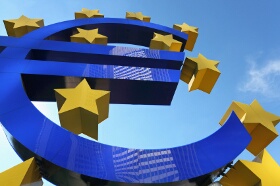The most important event this week turned out to be the monetary policy of the European Central Bank. Analysts expected it to be uneventful, but they were completely wrong. The resulting shock sent the euro down. While the currency managed to retain some of its gains versus the Great Britain pound by the weekend, it fell against most other major counterparts. It was euro’s eight week of losses versus the US dollar.
While market participants were expecting monetary easing from the ECB sometime in the future, they were not anticipating that the central bank would act so soon. The resulting shock sent the euro down against all other most-traded currencies, the reaction that was very likely welcomed by ECB President Mario Draghi, who wants to see the currency weaker.
Another shocker this week was the release of US non-farm payrolls. Economists were anticipating another month of robust employment growth, but the actual report was very disappointing. It allowed the euro to bounce halt decline and bounce a little, yet the impact of the data was not as strong as one might expect.
The sterling, another European currency, was even weaker than the euro due to the upcoming referendum about independence of Scotland.
EUR/USD sank from 1.3129 to 1.2951 (1.4 percent) this week. EUR/JPY fell from 136.78 to 136.10, retreating from the weekly high of 138.28. EUR/GBP rallied from 0.7925 to 0.7957 during the week but retreated to 0.7931 by the weekend.
If you have any questions, comments or opinions regarding the Euro,
feel free to post them using the commentary form below.
